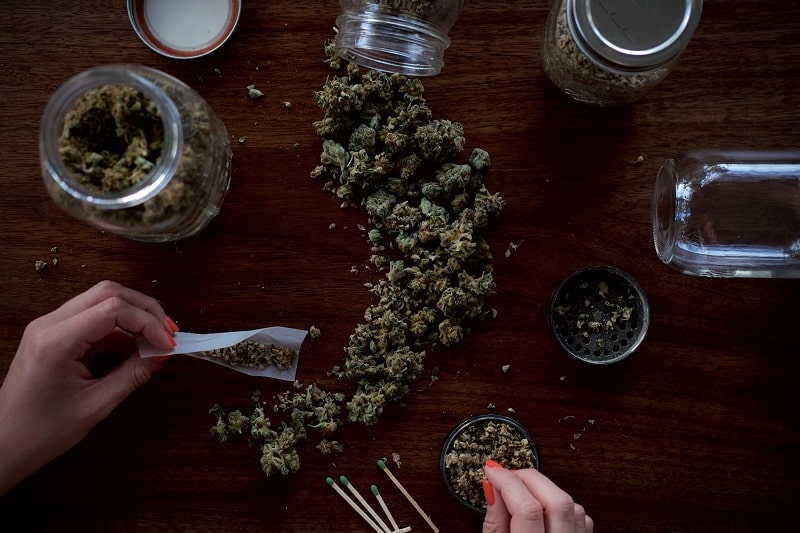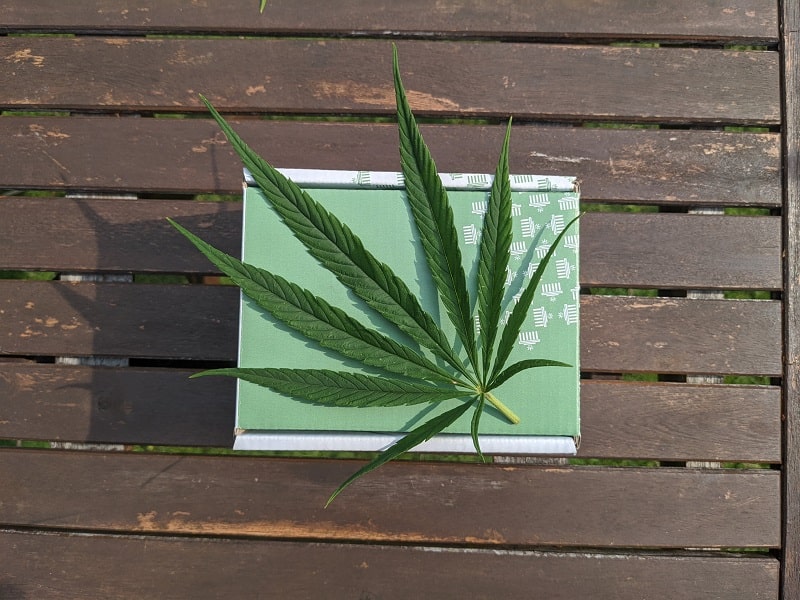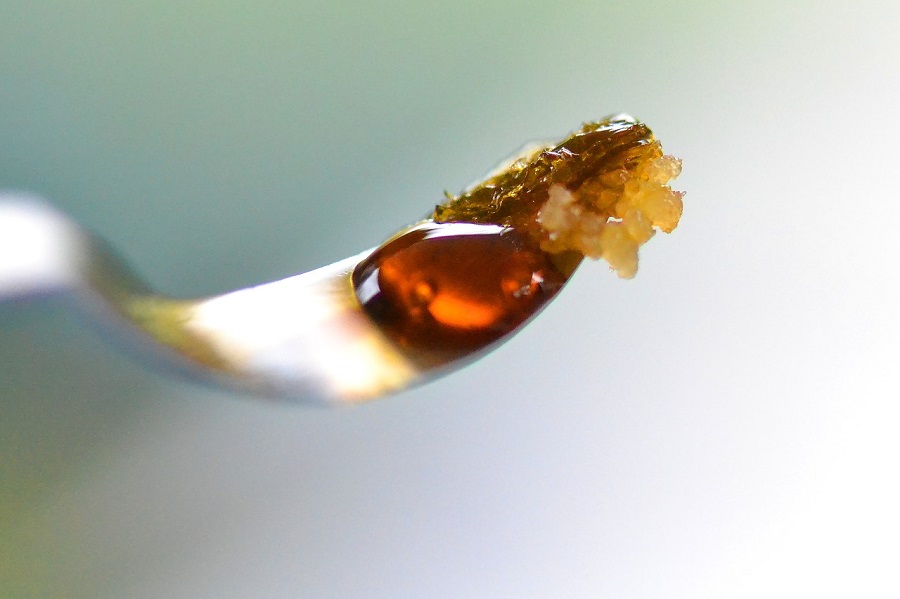Many people make use of marijuana for either recreational or medicinal purposes, and you can feel the effects of cannabis in a matter of minutes. However, even after those effects have worn off, traces of cannabinoids like THC are still in your system, detectable by various types of drug tests. But how long does marijuana stay in your system? This guide will provide the answer.
How Does Your Body Process THC?
As explained by the NIDA, when a person smokes or consumes marijuana, cannabinoids like THC pass into the bloodstream and are carried to the brain. There, the THC can interact with cannabinoid receptors in the endocannabinoid system (ECS), triggering various effects, like changes in mood, memory, and sensations.
Eventually, the liver breaks down THC into metabolites, which can be stored in fatty tissues and organs. Eventually, it gets broken down and removed from your system entirely by the liver, but this process can take a long time, and THC is still sometimes detectable in drug tests even weeks or months after using marijuana.
How Long Does Marijuana Stay in Your System?
Many people are surprised to learn that marijuana can stay in your system for a long time. When we think about the actual effects of marijuana or how long does a high last, you may only feel different for an hour or two, on average. But in terms of how long does THC stay in the system and how long does CBD stay in your system, these cannabinoids can stick around a lot longer.

How long CBD remains in your system will depend on multiple factors, including the amount of cannabis you’ve consumed, how frequently you use it, how much THC or CBD was present in the strain or product you consumed, the method of consumption, and your body’s own metabolic rate. Even factors like your health, sex, and lifestyle can have an impact.
How Long Is It Detectable in Drug Testing?
Many people want to know how long does THC stay in urine and how long will it be detectable on other kinds of drug tests. If you need to pass a drug test for work or other reasons, for example, you may want to know whether or not your result could be affected by some marijuana you smoked a week ago or cannabis products you consumed last month.
Well, once again, this all depends on several factors, like how much marijuana you used, how you used it, how much THC was present, and your genetics. As a rough guide, experts say that THC is usually detectable in urine for up to three days after a single use, a week for people who use cannabis regularly, and more than a month in heavy users.
Other testing methods may not be able to detect cannabis that far back. Blood tests, for example, are primarily used to identify the usage of cannabis in the previous day or two. Saliva testing is also usually used to detect very recent (up to 3 days) cannabis use, whereas hair tests can find traces of THC going back up to 90 days.
Types of Drug Testing
There are multiple types of drug testing that may be used to look for traces of marijuana in a person’s system. Some tests are deemed more reliable and efficient than others, and some are better at detecting long-term cannabis usage than others. Each type has its pros and cons. Here’s a full list of the most common methods:
- Blood Testing – Blood tests are useful for detecting recent usage of marijuana (in the last few hours or a couple of days). These kinds of tests aren’t very common, due to their invasive nature and the availability of simpler, safer alternatives.
- Saliva testing – Saliva tests, similar to blood tests, only work to detect very recent (usually the same-day) usage of marijuana. It may be present in a person’s saliva for a couple of days after usage.
- Hair testing – Hair follicle tests have a much longer window of detection compared to blood or saliva tests. They can spot traces of THC as far back as 90 days. This is because cannabinoids move into hair follicles through small blood vessels in the scalp after marijuana is used. Traces stay in the hair strand as it grows.
- Urine Testing – Urine testing is one of the most common forms of drug testing, and according to the University of Rochester Medical Center, one of the most accurate. The CDC agrees with this, and urine tests can be helpful for detecting THC even weeks after use.

Do Edibles Show Up in Drug Tests?
Yes, if you consume edibles containing THC, that THC will stay in your system in the same way it would from smoking, vaping, and other ways to consume cannabis. Edibles can stay in your system for days, weeks, or even more than a month, based on the quantity of THC, your cannabis consumption habits, your lifestyle, and other factors.
What Factors Impact How Long CBD Stays in Your System?
As explained above, a range of different factors may impact the amount of time that THC stays in your system, including:
- THC dose – If you buy and use strains with high levels of THC, the THC will have more chance of sticking around in your system for long. The same applies if you consume marijuana in large quantities. It’s worth speaking with staff at your local Los Angeles dispensary to ask about low-THC strains. The same logic applies to CBD dosage.
- Body fat – THC is fat-soluble and tends to be stored in fatty tissue around the body. If you have more fat, there’s more space for THC to be stored and less chance of it being burned away and broken down. Therefore, people with higher amounts of body fat will have THC in their system for longer.
- Metabolism – Some people have naturally fast metabolisms that are able to break down molecules quickly and efficiently. Others have bodies with a slower metabolic rate. If your metabolism is slower, it’ll take longer for the THC to break down, meaning that it will be in your system much longer.
- Sex – Sex can also have an impact on how long THC stays in your system. Women typically have more body fat than men, so THC tends to stick around for longer in female bodies.
- Exercise – As explained earlier on, THC is stored in fat cells. If you get a lot of exercise and burn off some of your body fat, you can burn away the THC along with it. People who exercise very regularly are therefore more likely to have THC in their bodies for shorter periods of time.
- Hydration – By staying hydrated, you’ll support your body’s digestive and metabolic processes, which can help to speed up the breakdown of THC. In addition, drinking more will lead to more frequent urination, which is one of the ways in which your body removes toxins.

How to Get Marijuana Out of the Body Faster
We’ve seen how long marijuana can stay in your system, but how to get marijuana out of your system quickly and efficiently? Well, there are several methods available to you, such as getting lots of exercise and drinking lots of water to burn away THC in fat and flush out toxins from your system. Detox products and supplements may also aid in this. Contact us to learn more.
The Bottom Line
Overall, when it comes to how long does marijuana stay in your system, it all depends on a very large number of factors. Some people may have CBD detected via a urine test a whole month after smoking, while others can be in the clear only a few days later. This is why it’s crucial to be aware of any upcoming drug tests you may have to pass and take the relevant steps to prepare.
Sources
- https://nida.nih.gov/publications/drugfacts/cannabis-marijuana
- https://www.theguardian.com/society/2019/apr/26/driving-while-high-cannabis-study-safety
- https://www.ncbi.nlm.nih.gov/pmc/articles/PMC2722956/
- https://www.urmc.rochester.edu/encyclopedia/content.aspx?contenttypeid=167&contentid=cannabinoid_screen_urine
- https://www.cdc.gov/mmwr/preview/mmwrhtml/00000138.htm



